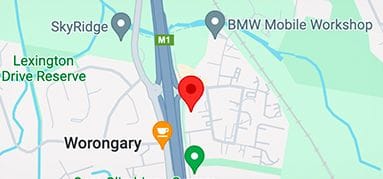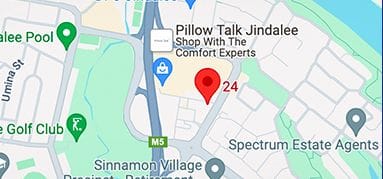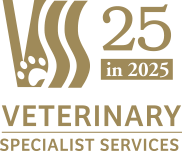SURGERY BRACHYCEPHALIC CARE UNIT
Surgery Department
Spinal Disorders

A neurological examination will tell us how severely affected a patient is, and we will also be able to localise the problem to a region(s) of the spinal cord.
- Grade 1 neurological injury is where a patient experiences pain, but no neurological deficits.
- Grade 2 neurological injury is where a patient has neurological deficits such as paresis (weakness), decreased proprioception and changes in ability to ambulate (walk).
- Grade 3 is where the paresis is severe enough that the patient is non-ambulatory (unable to walk) and has significant neurological deficits.
- Grade 4 is where additionally the patient is paralysed in the affected limbs. This describes where they have no ability to consciously move the limbs, which we call absence of motor function. A grade 4 patient however, has pain sensation. This is a test where we apply a painful stimulus to the toes and watch to see whether the patient reacts. It is important to note, that withdrawal of the limb is not the same as a reaction, as this can occur as part of a reflex.
- Grade 5 patient is where this pain sensation is lost. They have a complete paralysis and can’t feel anything. We call this ‘Deep Pain Negative’. This is the most severe injury, and these patients should be operated on within 12-24 hours. Brachycephalic breeds may be prone to other spinal abnormalities, such as hemivertebrae, where the vertebrae develop abnormally. These can be asymptomatic or can contribute to spinal instability or disc degeneration.
The BCU is committed to treating spinal conditions in brachycephalic dogs, and all dogs treated for a spinal condition will receive an airway examination and report.
Orthopaedic Disorders
Brachycephalic dog breeds are prone to musculoskeletal disorders including hip and elbow dysplasia, condylar fractures and humeral intercondylar fissures (which can cause pain and lameness). All dogs that are anaesthetised to investigate an orthopaedic disorder will receive an airway exam and report. In reverse, patients anaesthetised for their airway surgery, will have a CT scan that examines the joints.
Humeral condylar fractures are a fracture configuration we commonly see in French Bulldogs. These are complex fractures to repair and are important for us to see as soon as possible. This is because the fracture involves the joint surface, and delay in repair can result in difficulty reducing the fracture perfectly due to callus (early healing) formation. When we are repairing fractures that involve the joint, careful attention is paid to anatomical alignment and rigid fixation. Unfortunately, with these fractures, some degree of osteoarthritis is common.
Brachycephalic Obstructive Airway Syndrome
Brachycephalic Obstructive Airway Syndrome is a term that describes the primary and secondary airway abnormalities that lead to a disrupted normal airflow. The symptoms of this can be related to the airway obstructive disease or gastrointestinal disease (which is often exacerbated by airway disease). There is a wide range of clinical signs that our surgeons see associated with this disease, however the main ones include gagging while eating, regurgitation of food, snoring, intolerance to normal amounts of exercise or heat, and sleep apnoea. Affected dogs may not have all of these symptoms.
We address as many issues as possible, without increasing patient morbidity/risk of complication. An individualised approach is taken, after a careful examination of the airway. Possible surgical interventions include; staphylectomy (shortening of the soft palate), tonsillectomy (resection of everted tonsils), sacculectomy (resection of laryngeal saccules, when everted), alaplasty (to widen the nares) and less commonly; other palatoplasty procedures (to modify the thickness or shape of the palate), arytenoid lateralisation (to permanently open the larynx), laser assisted turbinectomy and tracheostomy (temporary or permanent bypass of air via the trachea).
One of the key things we want owners of brachycephalic dogs to be aware of is that brachycephalic airway syndrome is progressive - it only gets worse. We really want to intervene surgically in these patients as early as possible to prevent chronic and in some cases, irreversible airway pathology.
- We perform a full-body Computed Tomography (CT). This is a very quick procedure (<60 seconds) and gives us additional information. Specifically, we look at the patient’s spine, oesophagus, middle ear, chest, nasal turbinates, and especially for French Bulldogs, we look at their elbows for signs of humeral intercondylar fissure.
- Skull CT also allows us to look at dentition. Brachycephalic patients have an increased risk of some dental conditions. See the information below for common dental conditions. Each patient anaesthetised for airway surgery with us will receive a dental examination and report under the guidance of Advanced Animal Dentistry.
- Each patient anaesthetised with us for airway surgery will receive an Ophthalmic report. See the information below for common ophthalmic conditions. The perfect stress-free time to perform an eye exam on a brachycephalic patient is whilst under anaesthesia.
- Active follow-up for resolution of both airway signs but also gastrointestinal signs following surgery. Our goal is to ensure our brachycephalic patients are not lost to follow-up.
)




